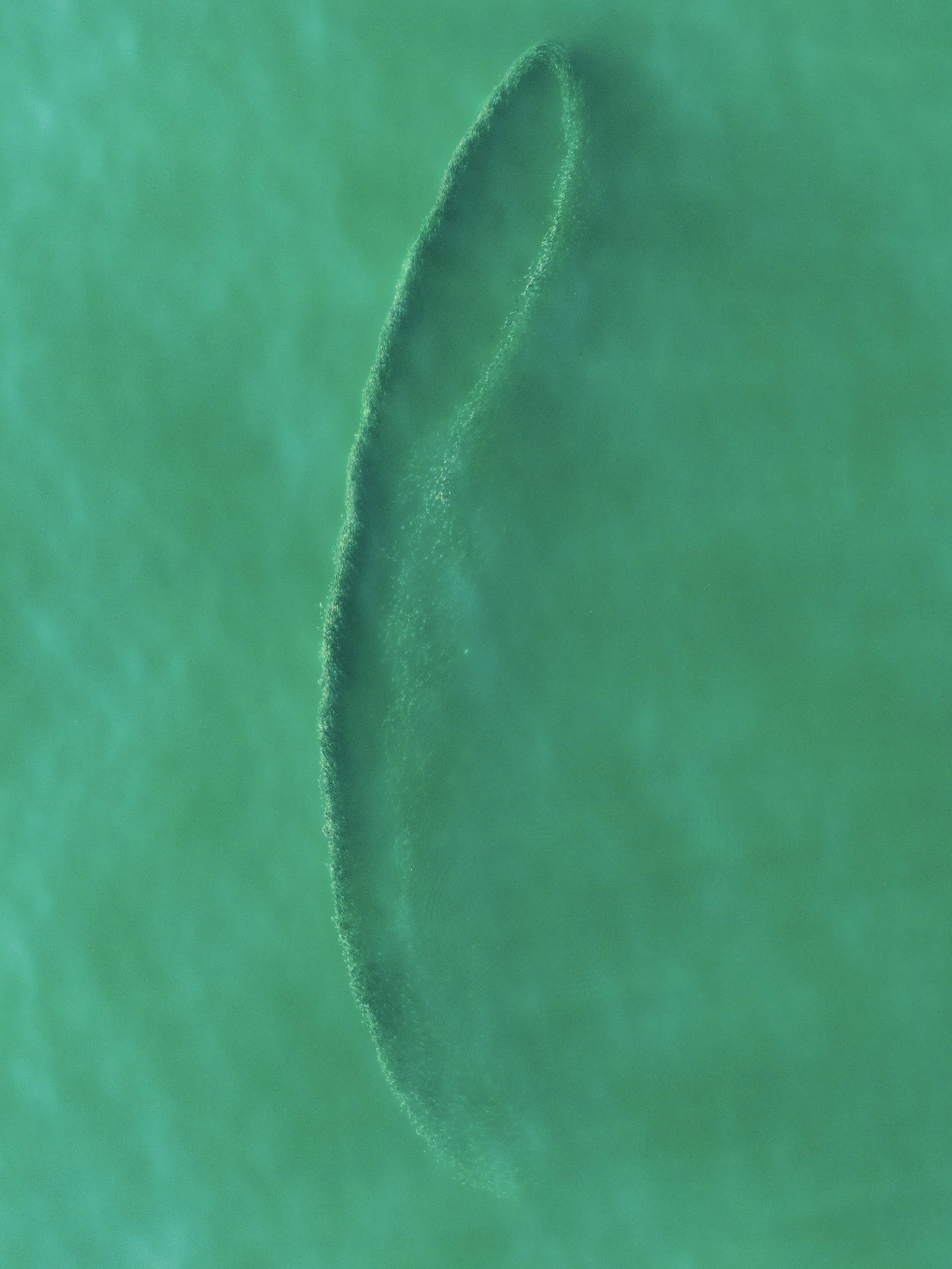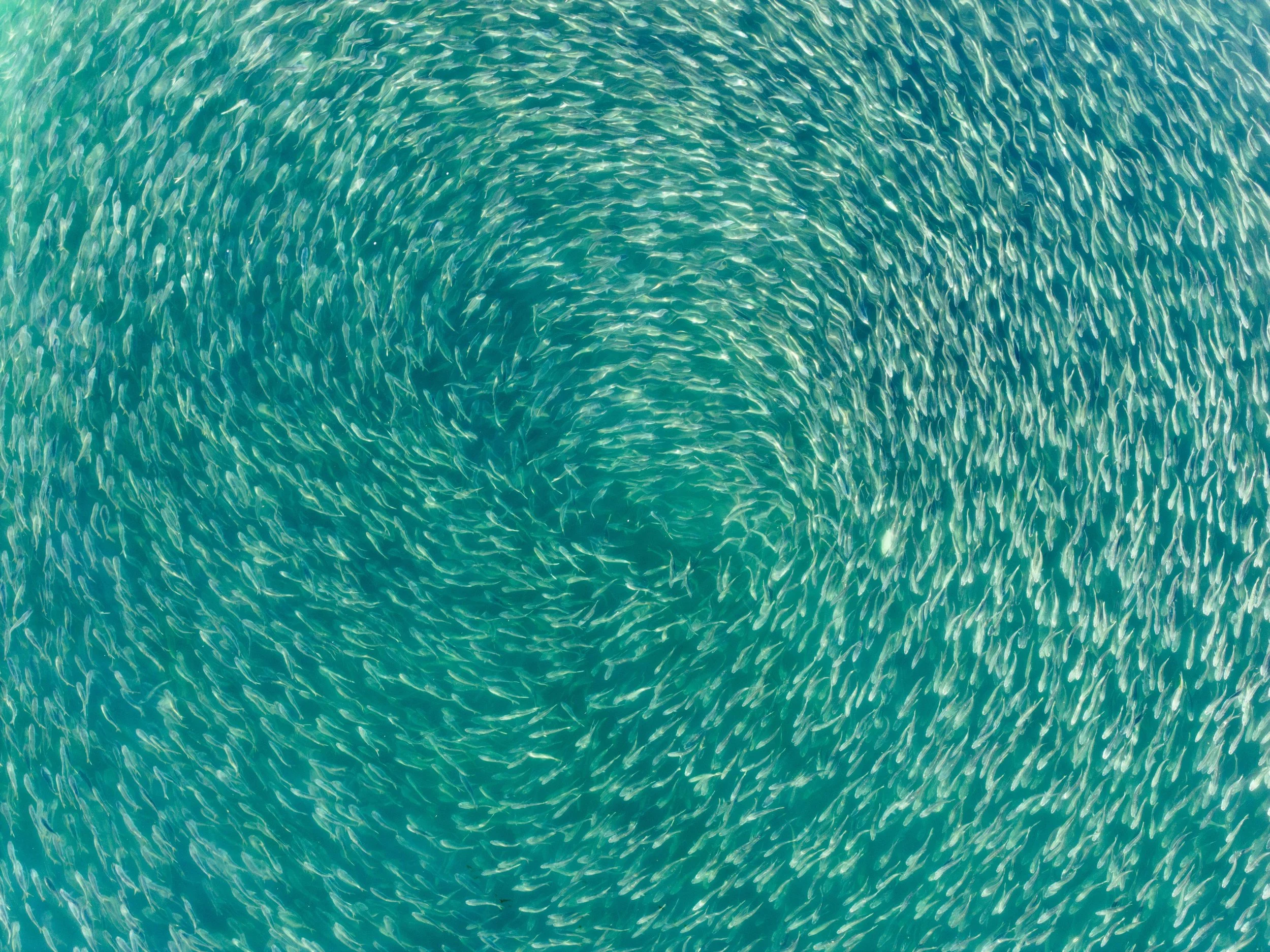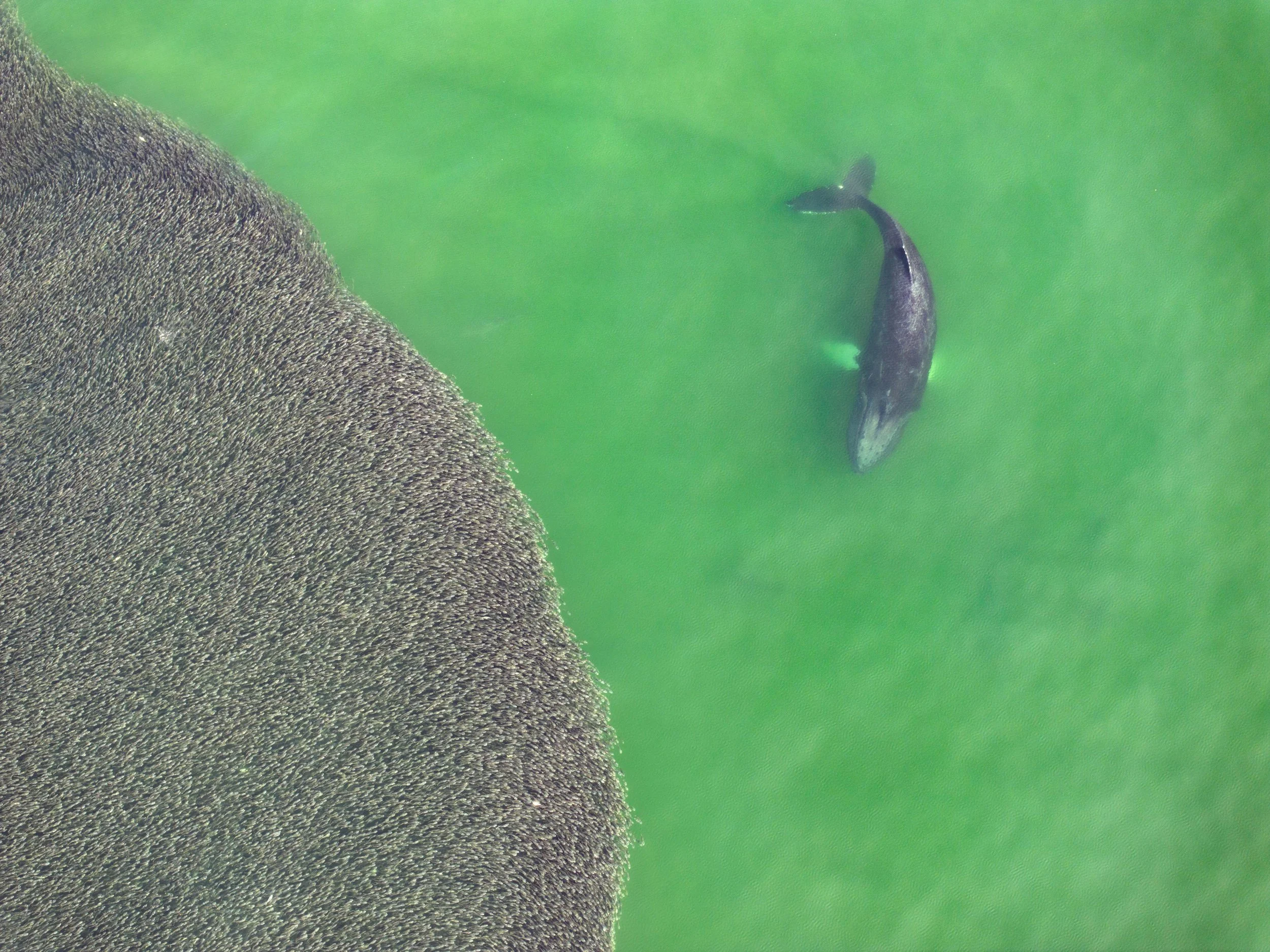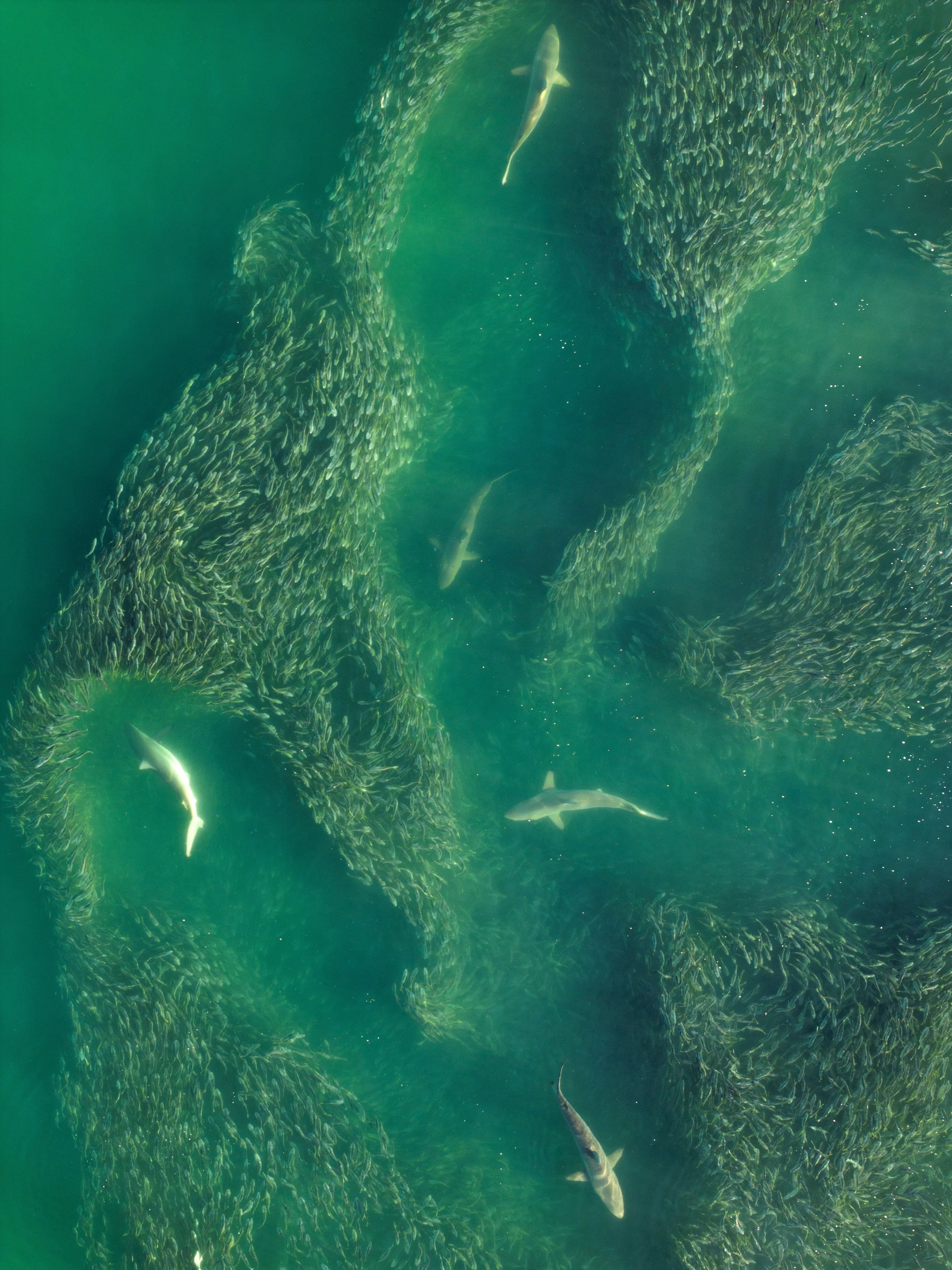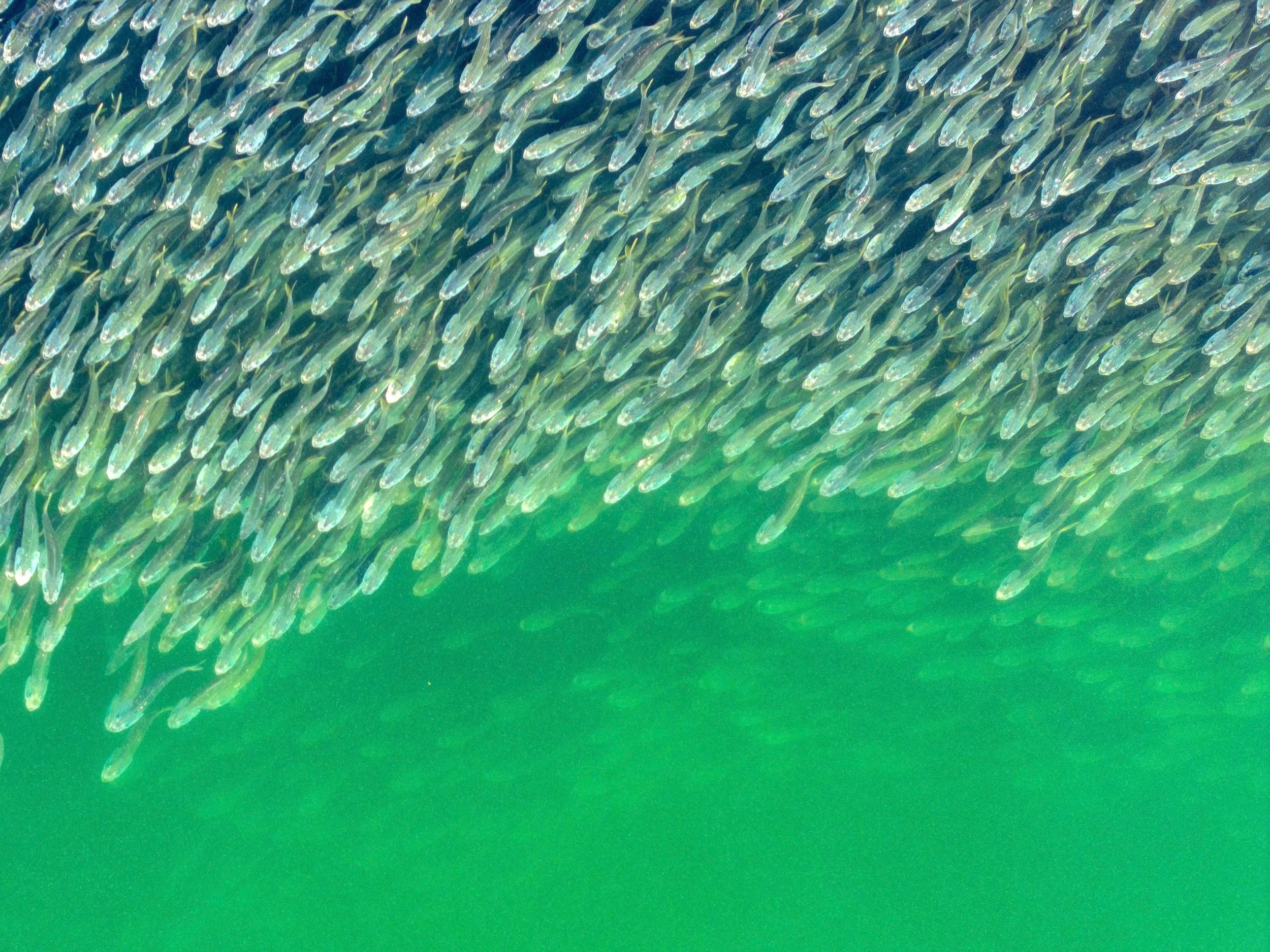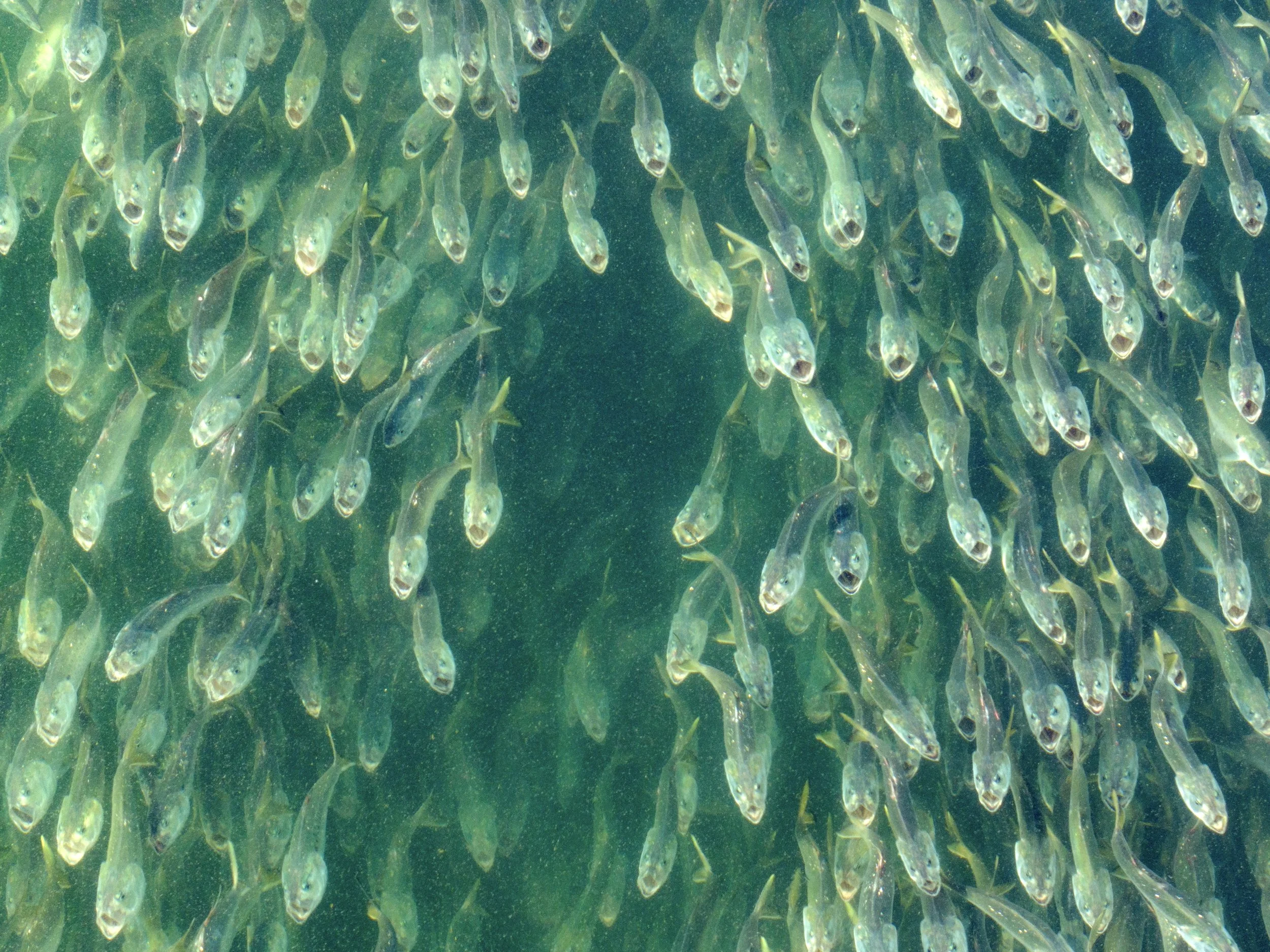
Atlantic Menhaden
Atlantic menhaden (Brevoortia tyrannus) are small, silvery, filter-feeding fish that play an outsized ecological role along the U.S. East Coast. Found from Florida to Maine, they travel in massive, tightly coordinated schools and feed primarily on phytoplankton and zooplankton, helping to cycle nutrients and improve water quality in coastal ecosystems. Their ability to filter large volumes of water makes them a critical link between the base of the food web and larger marine predators.
They are considered one of the most important forage species in the Atlantic, serving as a foundational food source for humpback whales, striped bass, bluefish, tuna, ospreys, and countless other predators. Because of their abundance and high energy content, the health of menhaden populations directly influences the presence and behavior of many species along the coast. Their management has become a major conservation focus in recent years, as changes in harvest pressure, climate conditions, and regional protections can dramatically shape the dynamics of nearshore marine life.
Nature Conservancy - Resurgence
NOAA - Biology
NYT - 2012 Catch Limits
Atlantic States Marine Fisheries Commission - Management
The Most Important Fish in the Sea by H. Bruce Franklin - Book
The Biggest Little Fish You’ve Never Seen - Short Documentary
Menhaden: The Most Important Fish in the Bay PBS - Short Documentary


